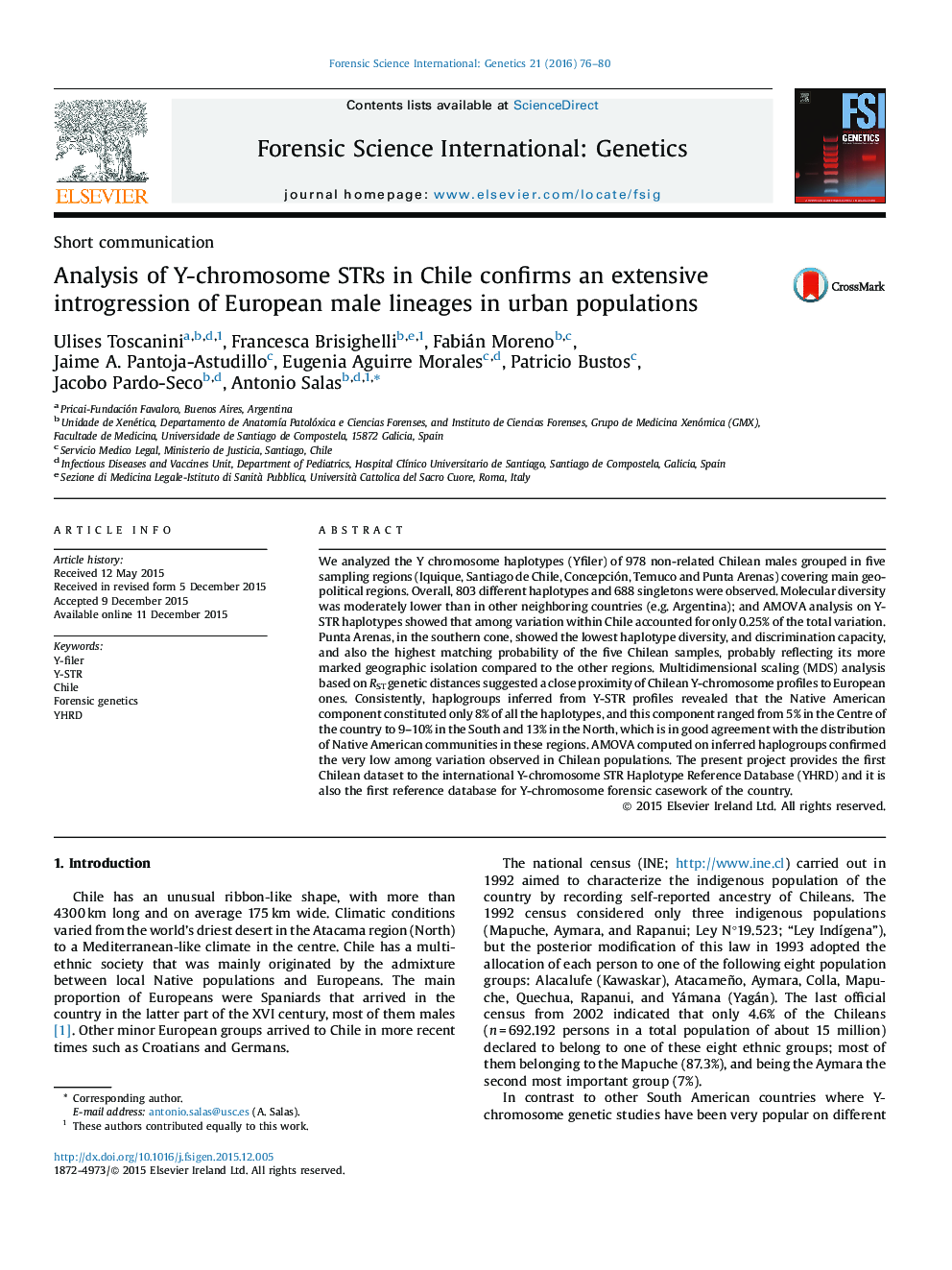| Article ID | Journal | Published Year | Pages | File Type |
|---|---|---|---|---|
| 6553636 | Forensic Science International: Genetics | 2016 | 5 Pages |
Abstract
We analyzed the Y chromosome haplotypes (Yfiler) of 978 non-related Chilean males grouped in five sampling regions (Iquique, Santiago de Chile, Concepción, Temuco and Punta Arenas) covering main geo-political regions. Overall, 803 different haplotypes and 688 singletons were observed. Molecular diversity was moderately lower than in other neighboring countries (e.g. Argentina); and AMOVA analysis on Y-STR haplotypes showed that among variation within Chile accounted for only 0.25% of the total variation. Punta Arenas, in the southern cone, showed the lowest haplotype diversity, and discrimination capacity, and also the highest matching probability of the five Chilean samples, probably reflecting its more marked geographic isolation compared to the other regions. Multidimensional scaling (MDS) analysis based on RST genetic distances suggested a close proximity of Chilean Y-chromosome profiles to European ones. Consistently, haplogroups inferred from Y-STR profiles revealed that the Native American component constituted only 8% of all the haplotypes, and this component ranged from 5% in the Centre of the country to 9-10% in the South and 13% in the North, which is in good agreement with the distribution of Native American communities in these regions. AMOVA computed on inferred haplogroups confirmed the very low among variation observed in Chilean populations. The present project provides the first Chilean dataset to the international Y-chromosome STR Haplotype Reference Database (YHRD) and it is also the first reference database for Y-chromosome forensic casework of the country.
Related Topics
Life Sciences
Biochemistry, Genetics and Molecular Biology
Genetics
Authors
Ulises Toscanini, Francesca Brisighelli, Fabián Moreno, Jaime A. Pantoja-Astudillo, Eugenia Aguirre Morales, Patricio Bustos, Jacobo Pardo-Seco, Antonio Salas,
